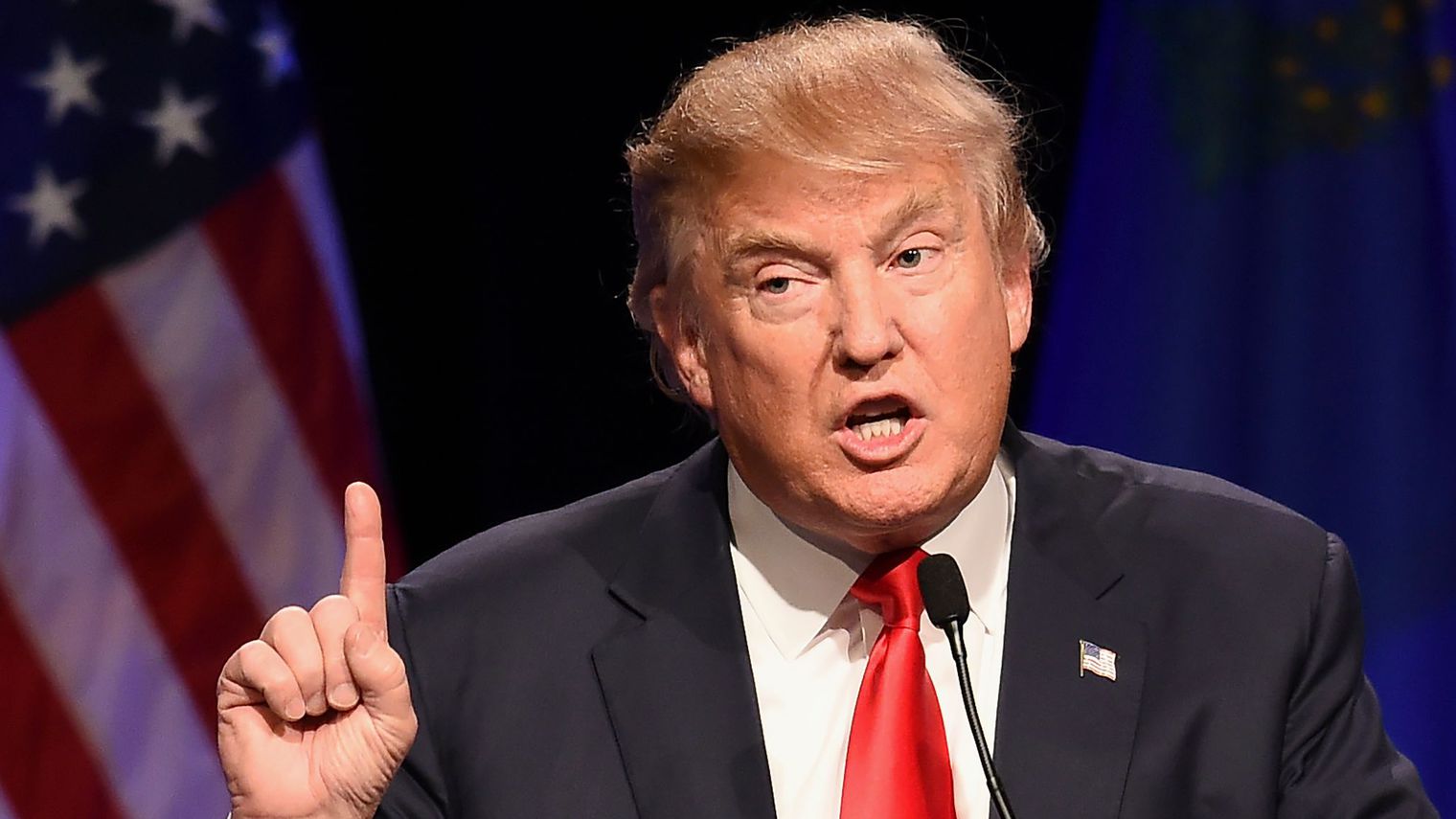
COLLISION COURSE
US to probe Chinese IP practices amid tensions over North Korea

Donald Trump will announce an investigation into the way China deals with intellectual property today—his first major anti-China trade action.
On Sunday, Mr Trump tweeted that he would “no longer allow” China “to make hundreds of billions of dollars a year in trade” while they do “NOTHING for us with North Korea [sic]”. Today’s announcement is his response.
Numerous reports suggest cyber-attacks from Beijing-linked groups continue to target US firms, perhaps to the tune of $300 billion a year. Less nefarious but more concerning is China’s new cyber security law, which requires foreign firms to keep their data on Chinese servers. The law has raised eyebrows given Beijing’s murky history of corporate espionage.
While pressuring China to act on North Korea is a short-term goal, slowing the rise of a superpower with the ability to challenge Washington is the long-term strategy. China has made major advances in high-tech research and manufacturing recently and wants to be a world-leader in key future industries like artificial intelligence and electric cars by 2025.
The stalemate over who should do what about North Korea’s militarisation has put the US and China—the world’s two largest economies—on a collision course, one that threatens serious global economic ramifications. Taming Pyongyang will avert a crash…at least for now.
DECIDED DEMOCRACY
Rwanda’s Kagame to secure third presidential term

Rwanda’s presidential election will be held today, with incumbent Paul Kagame expected to win handily.
In the 23 years following a horrific genocide that claimed the lives of around 800,000, Rwanda has undergone miraculous developments. Under Kagame’s 17-year rule, infrastructure has been expanded and upgraded and the economy has been stabilised—all facts Kagame has touted in the months leading up to the election.
Regardless, as many of the president’s critics reiterate, such advances have come at the expense of political freedoms and civil liberties. Kagame’s actions have made many dissenters the victims of harassment, incarceration, and murder. A number of opposition leaders and regime critics have been disqualified from running or found dead. Similarly, several people at Kagame’s political rallies had been forced or coerced into attendance.
While happy with the country’s development, many fear their government is drifting towards dictatorship. With underlying concerns about Kagame’s power mounting, some Rwandans are having flashbacks to the political power sharing dynamics that ultimately led to the country’s 1990-1994 civil war.
PHONE MAKER BEHIND BARS?
South Korean prosecutors to request sentence for Samsung chief

Lawyers prosecuting Jay Y Lee, the de facto head of Samsung Group, will propose his sentence today. The coming verdict will determine how seriously special prosecutor Park Young-soo cleaning up corruption in the tightly knit corporate community.
Lee has been accused of bribing ousted President Park Geun-hye’s confidante, Choi Soon-sil, with over $30 million of donations to Choi’s foundations.
The prosecution claims this payment drove Park to pressure the country’s state-run pension fund into allowing the contentious merger of two Samsung affiliates. The merger, which consolidated Lee’s power over Samsung’s smartphone production, has resulted in another collaborator’s 30 month prison sentence for corruption.
While Samsung Group has been thriving throughout Lee’s five months in prison, a potential prison sentence of five years may put a damper on leadership in the country’s largest “chaebol,” or family run conglomerate. Whether new president Moon Jae-in then pardons the executive will forecast government-chaebol relations throughout his upcoming term.
NONFARM HARVEST
US to show job growth in July unemployment figures

Today, the US Bureau of Labour Statistics releases its report on national employment for July, which is expected to be the 82nd consecutive month of job growth.
The report includes the month’s change in the number of nonfarm payroll jobs, or any occupations outside of farming, military service, self-employment, and private household employment. Around 80% of US workers fall under this category, so it is a telling metric of the economy’s health.
Coming off a job surge in June, predictions suggest about 185,000 job additions in July. This would lower the unemployment rate will drop from 4.4% to 4.3%.
A sector to watch will be renewable energy, which is one of the fastest growing providers of jobs in the country. Given President Trump’s push to bolster non-renewable energies like coal and continued shirking of climate change, it will be interesting to see whether or not this sector can still achieve such growth.
Beyond employment, continued growth could help propel inflation rates, encouraging the Fed to hike interest rates for a third time this year.
HAPPENING ELSEWHERE…

Australia’s central bank will publish its reasoning behind the decision to hold interest rates at 1.5%. The Statement on Monetary Policy will also provide further insight into the Reserve Bank’s take on the Australian economy, including inflation and growth forecasts. Expect both to be more or less unchanged, with the GDP expected to grow between 2.5% and 3.5%. Indeed, Australia’s economy is remarkably stable and prosperous; last month The Lucky Country broke the record for the longest period without a recession—26 years. Lucky indeed.

